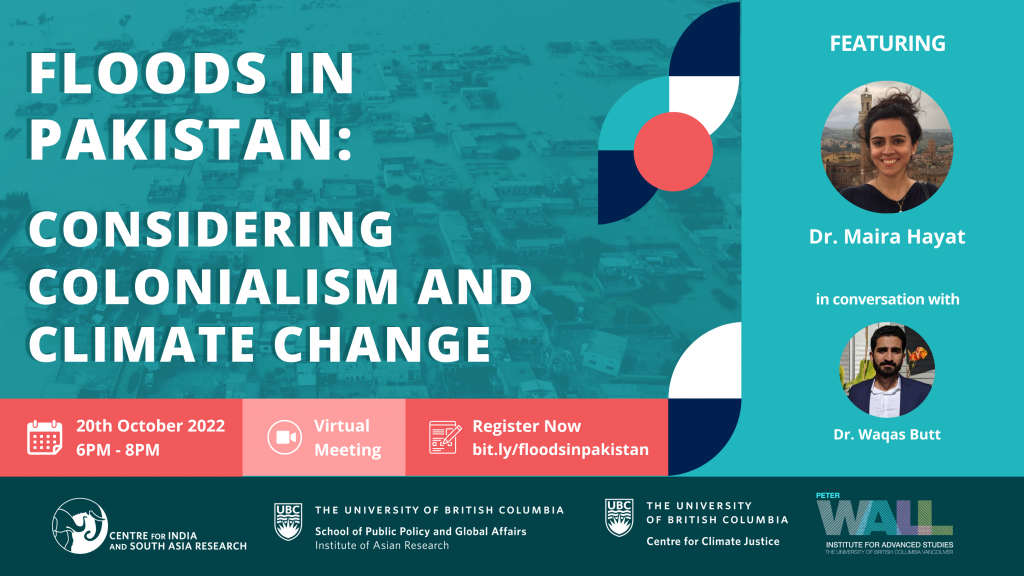Abstract
The monsoons of 2022 left over a third of Pakistan’s provinces underwater. While the spring saw scorching temperatures of over 50°C, rains that began in mid-June have left over half a million displaced, killed over 1400 people, and destroyed more than a million homes and thousands of kilometers of roads.
While being immensely vulnerable to climate change and disaster events, Pakistan contributes less than 1% to global greenhouse gas emissions. This discussion will examine the floods in Pakistan through the lens of colonialism, and ask what reparations can look like.
Featuring Maira Hayat, Assistant Professor in the University of Notre Dame and Member of the Institute of Advanced Studies, Princeton University, and Waqas Butt, Assistant Professor in the Department of Anthropology at University of Toronto – Scarborough.
Featuring
Key Speaker – Dr. Maira Hayat

Dr. Maira Hayat is an anthropologist and faculty member at the University of Notre Dame. This year she is a Member of the Institute for Advanced Study at Princeton University working on her book manuscript on water governance in Pakistan, and a second project on the role of the global South in the climate conversation. She graduated from the Lahore University of Management Sciences, Pakistan.
In conversation with Dr. Waqas Butt

Waqas H. Butt is an anthropologist at University of Toronto Scarborough whose work focuses on the intersections of caste, labor, infrastructures, informality, and waste in urban South Asia. His forthcoming book project examines the ways in which waste workers, who are drawn predominantly from low or non-caste (Dalit) groups, have become essential components of urban life in Pakistan. His next project will trace the impact that climate change is having on agrarian ecologies and livelihoods across Pakistan. His work has appeared in academic journals such as CITY, American Ethnologist, ILWCH, Ethnos, among others, as well as public-facing venues in Pakistan and North America.

